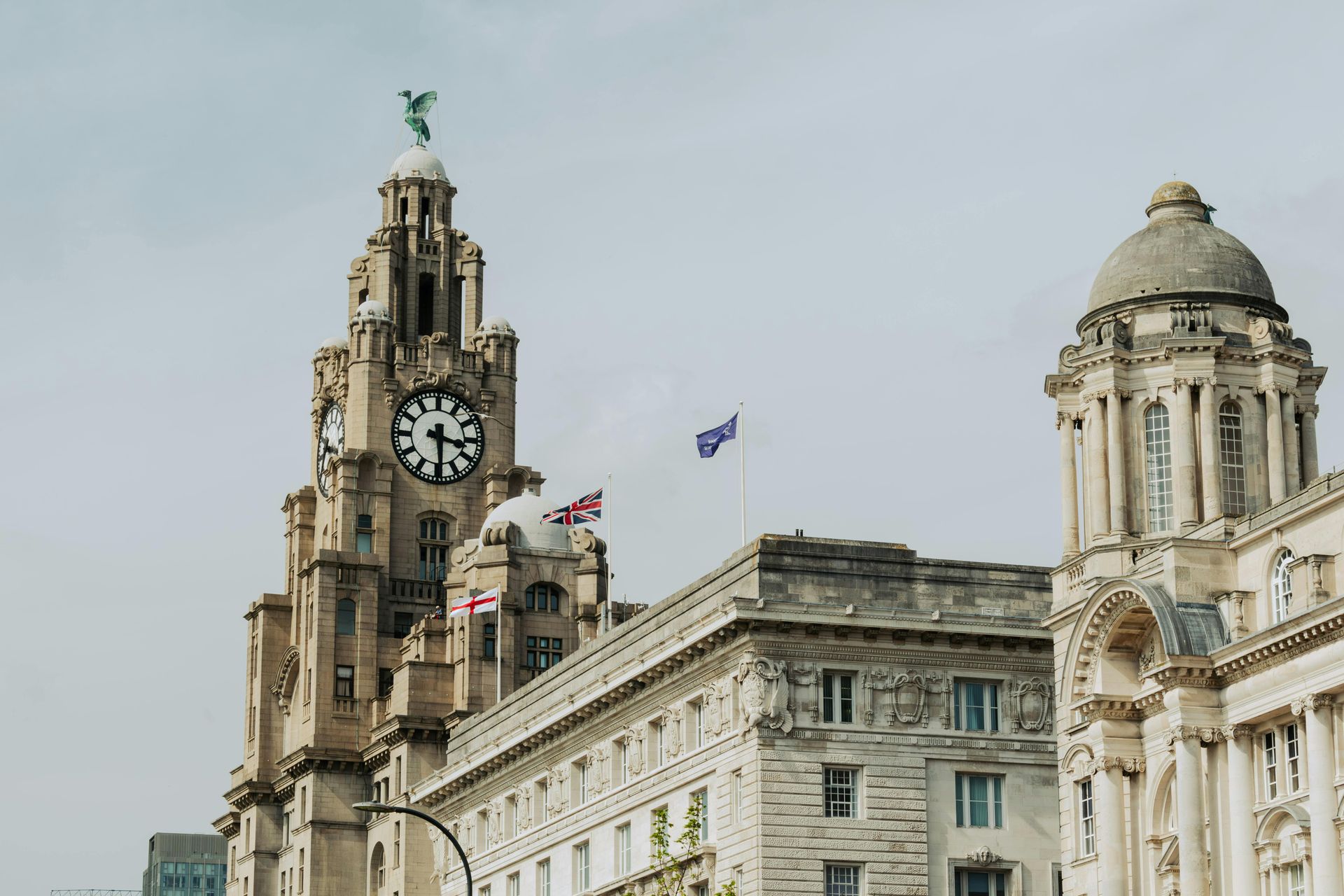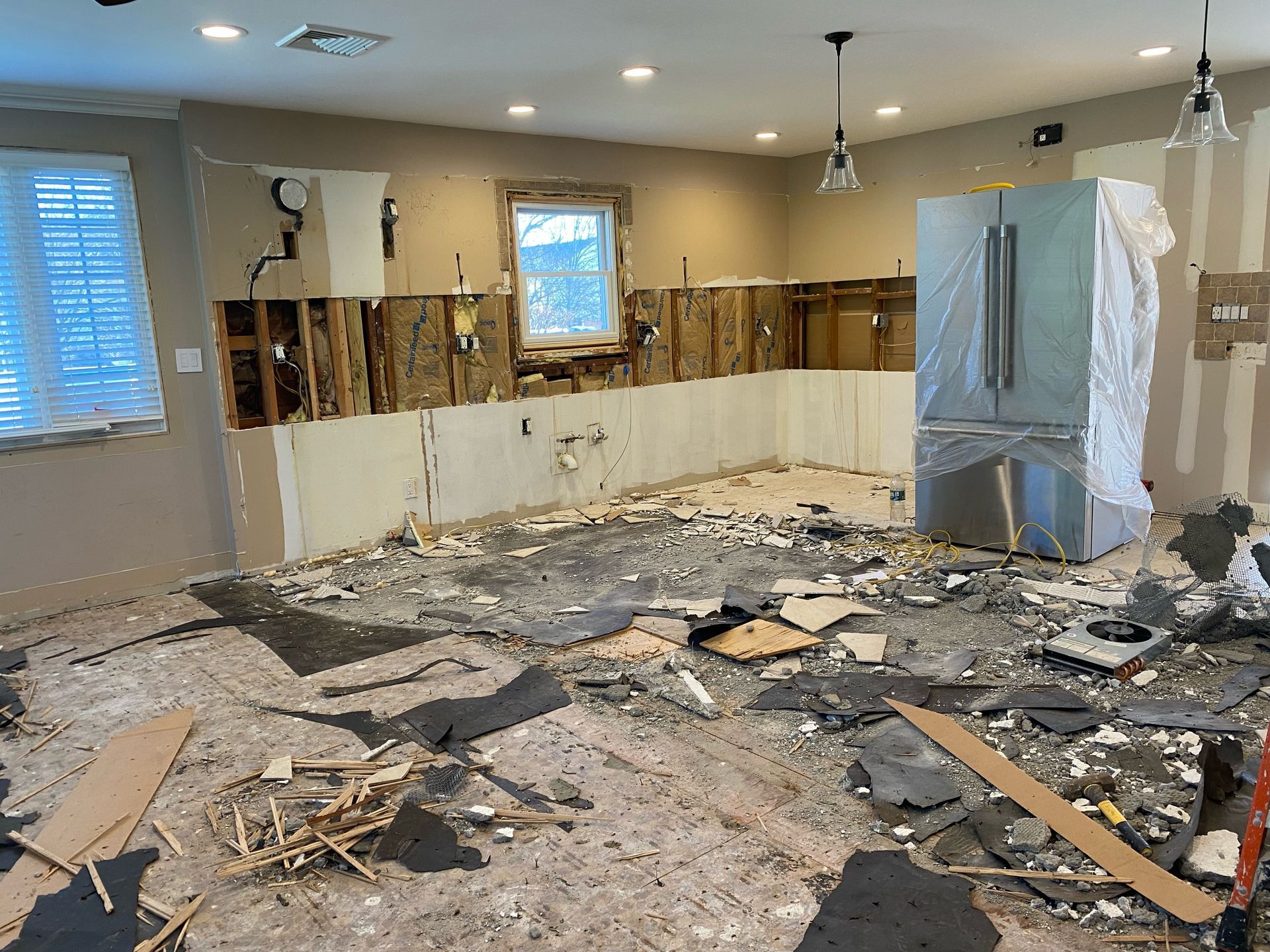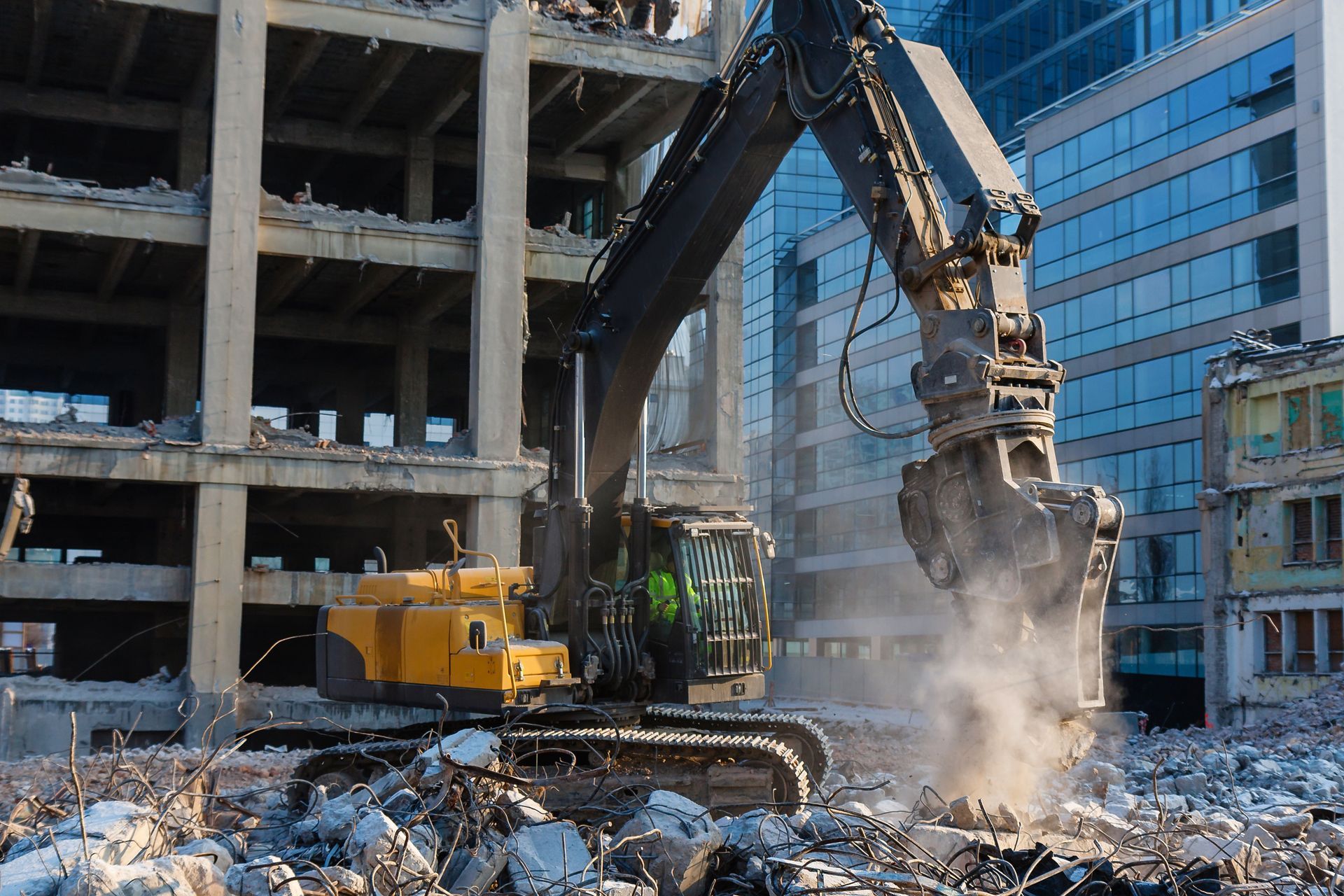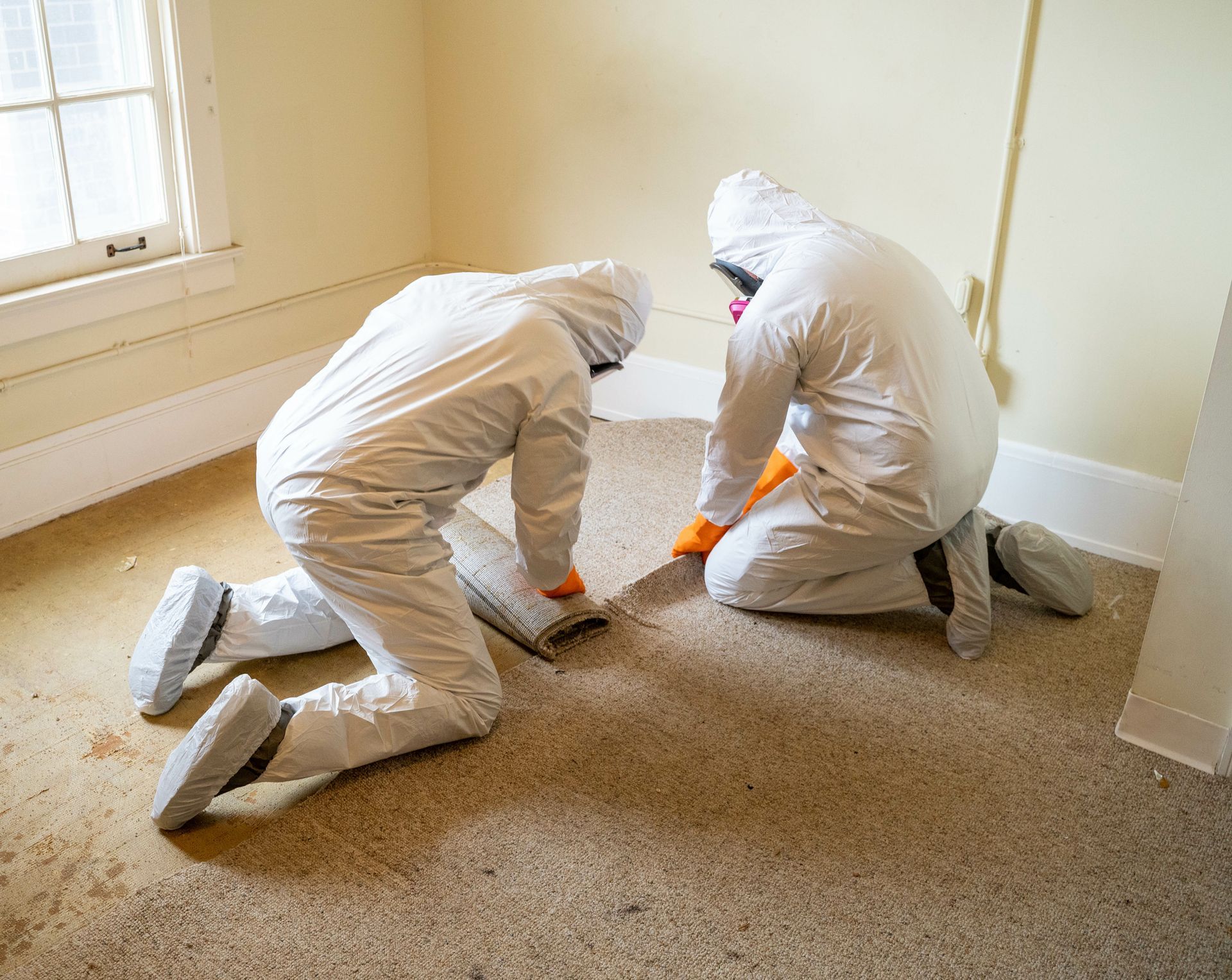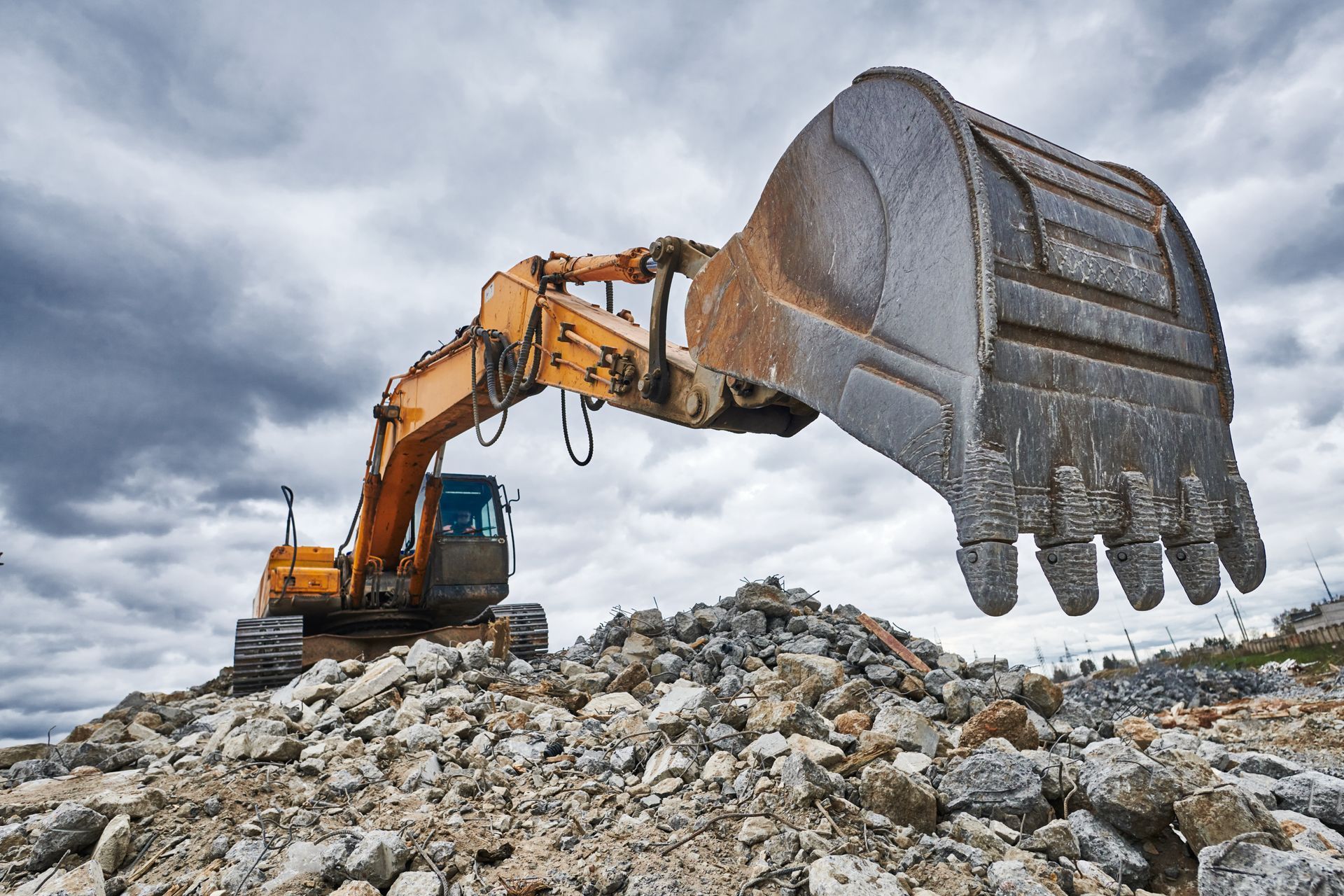Soft Strip Out Demolition Contractors Liverpool, Merseyside
In Liverpool and across Merseyside, safe, efficient demolition and soft strip services are essential for any property redevelopment or renovation project. Whether you're updating a Victorian terrace in Toxteth or preparing a commercial site in the heart of Liverpool city centre, our experienced teams deliver expert removal of internal and external structures. We ensure careful handling of hazardous materials, complete site clearance, and tailored solutions that meet all local regulations, keeping your project running smoothly and on schedule.
Safe and Efficient Demolition and Soft Strip Services in Merseyside
Professional demolition and soft strip services are essential for efficient and safe site preparation. Whether you are planning a full-scale redevelopment or an interior refurbishment, expert handling of hazardous materials, thorough site clearance, and tailored demolition solutions ensure that your project stays on schedule and meets all legal and safety requirements.
Comprehensive Demolition and Soft Strip for All Projects in Liverpool
Our services are designed to support a wide range of clients throughout Liverpool and Merseyside, including homeowners, landlords, developers, and businesses:
- Full demolition of structures in compliance with Liverpool City Council guidelines.
- Professional soft strip services for internal spaces ahead of full demolition or refurbishment.
- Safe removal and management of hazardous materials such as asbestos, following UK safety standards.
- Complete site clearance and responsible debris disposal, even in densely populated urban areas.
- Preparation of sites for redevelopment, conversions, or modernisation.
- Selective demolition techniques to preserve heritage features when required.
- Tailored soft strip solutions for residential, commercial, and industrial properties.
Precise Demolition with Hazardous Material Handling and Site Clearance
Liverpool's rich architectural heritage, with its abundance of historic and listed buildings, means that any demolition or soft strip work must be carried out with great care. We are trained and certified in the safe handling and disposal of hazardous materials such as asbestos and lead paint, adhering to strict Health and Safety Executive (HSE) regulations. By providing comprehensive site clearance services, we leave your property ready for the next phase of redevelopment, reducing delays and ensuring full regulatory compliance.
Collaborative Approach for Tailored Demolition and Interior Stripping
We work closely with clients across Merseyside, from Bootle to Birkenhead, to deliver bespoke demolition and soft strip services that align with project goals and local authority requirements. By developing detailed plans and maintaining open communication throughout the process, we ensure that projects are completed on time with minimal disruption. We also liaise with Liverpool City Council, Sefton Council, and other local authorities to ensure all necessary permissions and environmental considerations are fully addressed.
Fast, Reliable Demolition Services with Advanced Equipment
Utilising advanced equipment suitable for Liverpool's varied property types—from narrow city centre streets to suburban developments—we ensure quick, efficient project delivery. Our teams are equipped to handle challenges such as restricted access and busy environments, ensuring minimal disruption to surrounding properties. Whether you are stripping out an office block in the Baltic Triangle or a historic townhouse in Woolton, you can trust us to complete the work safely, efficiently, and to a high standard.
FAQs About Soft Strip and Demolition Services in Liverpool, Merseyside
What is soft strip demolition?
Soft strip demolition is the process of removing all non-structural elements within a building before major renovation or complete demolition. This includes removing fixtures, fittings, partition walls, ceilings, flooring, mechanical and electrical systems, and sometimes windows and doors.
In Liverpool, where many buildings are protected by heritage listings or located within conservation areas, soft strip demolition is critical to preserving the structural integrity and external appearance of historic properties while modernising interiors. Soft strip demolition also ensures that hazardous materials such as asbestos are safely identified and removed, creating a safe environment for future work.
This process is an essential first step in many refurbishment or redevelopment projects and should always be carried out by trained professionals to avoid accidental damage to structural components.
What is the average cost of soft strip in Liverpool, Merseyside?
Soft strip demolition costs in Liverpool typically range from £20 to £50 per square metre, depending on the property's size, complexity, and condition. Several factors can influence the final price, including the presence of hazardous materials, access difficulties (especially in densely populated areas like the city centre), and the need for careful handling in listed or protected buildings.
Projects in areas such as the Georgian Quarter or Albert Dock may incur higher costs due to the sensitive nature of the work. Additional charges can apply for waste management, traffic control, and out-of-hours services if required.
It is advisable to arrange a detailed site survey to obtain a tailored quotation that considers the specific challenges and requirements of your project.
What types of buildings require soft strip demolition?
A wide variety of properties across Liverpool and Merseyside may require soft strip demolition, including:
Terraced houses and residential blocks.
Commercial premises such as offices, retail stores, and warehouses.
Public buildings like schools, hospitals, and libraries.
Hospitality venues including hotels, bars, and restaurants.
Whether you are modernising an old warehouse in the Baltic Triangle or renovating a family home in West Derby, soft strip demolition provides a clean, safe starting point for any building project. It is particularly important in buildings where certain architectural features must be preserved, ensuring that refurbishments are completed sensitively and effectively.
Is soft strip demolition noisy or disruptive?
Soft strip demolition generally causes less noise and disruption compared to full structural demolition, but it is not entirely silent. Expect some noise from manual tools, machinery, and removal activities. In busy parts of Liverpool like Ropewalks or Anfield, it is important to manage disruption carefully.
Professional contractors will take steps to minimise dust, noise, and vibration, including using dust suppression equipment and scheduling works during agreed hours. Clear communication with neighbours and local businesses is crucial, and any necessary permits or notices (especially in controlled zones) will be obtained beforehand.
The overall disruption is usually manageable, and when properly coordinated, soft strip demolition should not significantly impact daily life around the site.
How long does a soft strip demolition take?
The timescale for a soft strip demolition project in Liverpool depends on the size and complexity of the building. On average, smaller residential properties may be completed within 3 to 7 working days, while larger commercial or public buildings could take several weeks.
Factors affecting the timeline include:
Size and layout of the building.
Presence of hazardous materials like asbestos.
Accessibility for removal teams and equipment.
Requirements for selective demolition or preservation of key features.
A professional contractor will provide a detailed project schedule following an initial site inspection, allowing you to plan around the work effectively.
Do I need permission for soft strip demolition in Liverpool?
Generally, internal soft strip works do not require planning permission. However, if the building is listed, located within a conservation area, or if structural elements are being removed, you may need consent from Liverpool City Council.
For listed buildings, even minor internal works might require Listed Building Consent. It is essential to check with the relevant local authority before starting any work. Contractors familiar with local regulations can guide you through the process and help ensure compliance.
Additionally, if hazardous materials such as asbestos are involved, notifications under the Control of Asbestos Regulations 2012 must be made to the Health and Safety Executive (HSE).
Can I stay in the property during soft strip demolition?
While staying on-site during a soft strip project is possible in some circumstances, it is generally discouraged due to health and safety concerns. The work often generates dust, noise, and disruption to utilities, making it uncomfortable and potentially unsafe for occupants.
If necessary, phased soft stripping can sometimes be arranged to allow continued use of parts of the building, particularly in commercial premises or multi-storey residential blocks. However, for most homeowners in Liverpool, temporary relocation during the demolition phase is recommended for safety and convenience.
What happens to waste material after soft strip demolition?
All waste material generated during soft strip demolition is sorted, recycled where possible, and responsibly disposed of according to environmental regulations. In Liverpool, waste disposal must comply with guidelines set out by the Environment Agency and local councils.
Materials such as metals, wood, and brickwork are often recycled, while hazardous waste like asbestos is securely removed and taken to licensed disposal facilities. Responsible waste management is crucial, especially in urban areas where space for on-site waste storage may be limited.
A reputable contractor will ensure full documentation of waste removal and recycling processes to meet all environmental and legal obligations.
How can I prepare for a soft strip demolition?
To prepare your property for soft strip demolition, you should:
Clear personal belongings and valuable items from the site.
Arrange disconnection of utilities (gas, electricity, water).
Notify neighbours if the work may cause disruption.
Secure any necessary permissions, especially for listed or conservation area properties.
Discuss access arrangements with your contractor to facilitate efficient work.
A comprehensive site inspection and preparation plan from your contractor will ensure that all risks are identified in advance and that the project runs as smoothly as possible.
What is the difference between soft strip and structural demolition?
Soft strip demolition involves the removal of non-structural parts of a building, such as internal walls, fixtures, ceilings, and services, while maintaining the main framework. Structural demolition, by contrast, involves removing the core elements of a building, including load-bearing walls, roofs, or entire floors.
In Liverpool, soft strip demolition is particularly valuable when working on properties that require sensitive internal renovations while preserving the external character, especially in historic districts like Rodney Street or Canning.
Choosing the correct type of demolition depends on your project's goals, and a qualified contractor can help you determine the most appropriate approach.
For expert soft strip and demolition services in Liverpool, Merseyside, trust GSNW as we ensures safe, efficient, and fully compliant solutions for all project types. Contact us today for a free consultation and site assessment.

